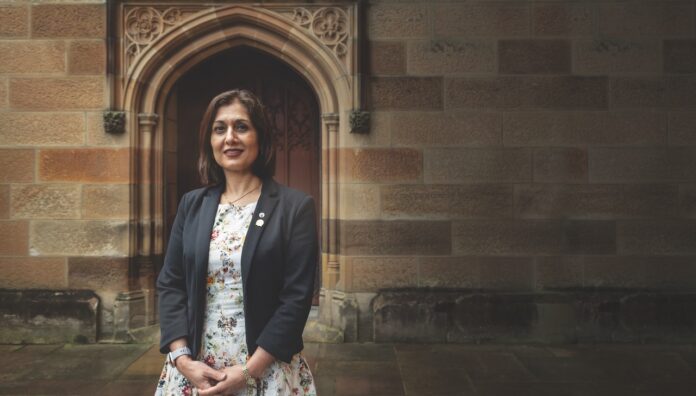Professor Parisa Aslani has dedicated her career to improving the quality use of medicines through better consumer information and adherence. She was conferred as a Fellow of the PSA at PSA22 in July.
What led you to study pharmacy at King’s College London?
Pharmacy combined my love of chemistry, biology and patient care. I was interested in a healthcare career, but not in medicine or nursing, so it seemed to fit the bill.
What does your role as the Professor in Medicines Use Optimisation at the University of Sydney School of Pharmacy involve?
Research [and] teaching … as well as governance, leadership and service to the profession and community. My research focuses on empowering patients, their carers and consumers in general to safely and effectively use their medicines. This [includes] the development of written medicines and health information that can be understood and acted upon, in particular by people with limited or poor health literacy, as well as supporting adherence to medications and self-management of medications.
How does your position as a Vice President of the International Pharmaceutical Federation (FIP) fit with your other work?
Being involved in FIP provides the opportunity to engage in strategic planning for the profession at a global level, which is underpinned by research evidence, [as well as] planning around workforce and education. The relationship is two-way: I contribute based on my education and research expertise, and I also utilise work done by FIP to support my research and education activities.
What impact does your work have on medicine and patient safety?
Some of my recent key activities include co-chairing a FIP working group to develop a report and policy statement on patient safety. Another piece of research I have been involved in was improving the Consumer Medicines Information leaflets that are available with medicines. I contributed to the template that is currently available and implemented by the Therapeutic Goods Administration.
What do you think other pharmacists would find particularly interesting about your work?
I aim to improve the health literacy of patients by impacting the way pharmacists and others provide medicines and health information. There is an art and science associated with how to communicate effectively in a written format so that people can easily find the information they need, understand [it] and act on the information appropriately.
One of the challenges for people with poor health literacy is knowing what questions to ask their healthcare professionals. One of the research projects I completed recently was … a booklet containing a series of questions that parents of children with Attention Deficit Hyperactivity Disorder (ADHD) can ask their clinicians about ADHD, from diagnosis to prognosis, etc.
How do you spend your time outside of work?
I have significant carer roles [but] when I have some spare time, I love reading and watching a murder mystery!
What do you see as the future of pharmacy?
I think the future of pharmacy is bright. As pharmacists, we have a range of skills, as well as extensive knowledge of medicines. We can contribute to many aspects of healthcare and all aspects of medicines management in all settings.



 John Jones MPS, pharmacist immuniser and owner of My Community Pharmacy Shortland in Newcastle, NSW[/caption]
John Jones MPS, pharmacist immuniser and owner of My Community Pharmacy Shortland in Newcastle, NSW[/caption]


 Debbie Rigby FPS explaining how to correctly use different inhaler devices[/caption]
Debbie Rigby FPS explaining how to correctly use different inhaler devices[/caption]




 Professor Sepehr Shakib[/caption]
Professor Sepehr Shakib[/caption]

 Lee McLennan MPS[/caption]
Lee McLennan MPS[/caption]
 Dr Natalie Soulsby FPS, Adv Prac Pharm[/caption]
Dr Natalie Soulsby FPS, Adv Prac Pharm[/caption]
 Joanne Gross MPS[/caption]
Joanne Gross MPS[/caption]








